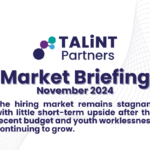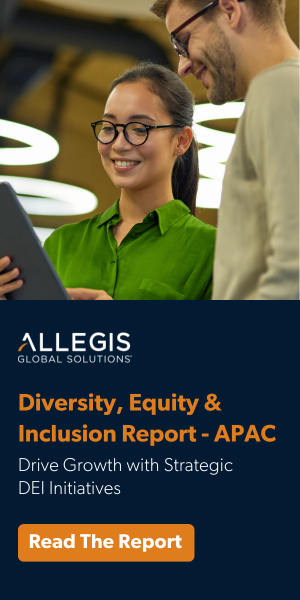The APAC region has witnessed dynamic shifts in its labour market in 2024, as organisations address talent shortages with innovative strategies and leverage global trends to stay competitive. This year, significant developments in global mobility, AI-powered recruitment, and sustainability have played crucial roles in shaping the workforce landscape, reflecting a broader, more integrated approach to talent management.
Global mobility to tackle skill gaps
One of the most notable trends in the APAC region this year has been the increased emphasis on global mobility to tackle skill gaps. Organisations have been expanding their search for talent beyond local borders, recognising that attracting and retaining top talent often requires looking internationally. This approach has been particularly vital in addressing regional skill shortages, especially in high-demand sectors such as technology, healthcare, and engineering.
To attract international talent, companies have been offering a variety of incentives, including relocation packages, flexible work arrangements, and support for visa and immigration processes. These measures not only make it easier for skilled professionals to move to new locations but also enhance their overall experience and satisfaction. Flexible work options, such as remote and hybrid arrangements, have been especially appealing, offering employees the ability to balance their professional and personal lives while contributing to their new roles.
Moreover, global mobility has facilitated the exchange of knowledge and expertise across borders, fostering innovation and collaboration. By bringing together diverse perspectives and skills, companies in the APAC region have been able to drive growth and maintain their competitiveness in an increasingly interconnected global market.
AI-powered recruitment
Another standout trend in 2024 has been the integration of artificial intelligence (AI) into recruitment processes. AI-powered tools have revolutionised how companies attract, screen, and hire candidates, improving efficiency and decision-making throughout the recruitment journey.
AI has been particularly effective in improving candidate matching. By analysing vast amounts of data, machine learning algorithms can assess candidates’ skills, experiences, and qualifications to identify the best fit for specific roles. This data-driven approach has not only streamlined the hiring process but also increased the likelihood of successful placements.
In addition to candidate matching, AI has played a key role in automating administrative tasks. Chatbots and virtual assistants have been deployed to manage initial candidate inquiries, schedule interviews, and provide updates, allowing HR professionals to focus on more strategic activities. This automation has resulted in faster response times and a smoother candidate experience.
Furthermore, AI-driven analytics have enabled organisations to make more informed, data-backed decisions. By evaluating recruitment metrics and trends, companies can identify areas for improvement, optimise their strategies, and improve overall recruitment outcomes. This data-driven approach has proven essential in a competitive talent market, where attracting and retaining top candidates is increasingly challenging.
Sustainability and employer branding
The impact of COP29 extended to the APAC region, with sustainability becoming an increasingly important component of employer branding. Companies recognised that integrating sustainability into their employer value propositions (EVPs) could not only attract environmentally conscious candidates but also enhance their reputation as responsible employers.
Organisations in the APAC region have introduced a range of green benefits, including electric vehicle (EV) subsidies, carbon offset programs, and sustainable workplace practices. These initiatives not only reduce the environmental footprint of businesses but also resonate with employees who prioritise sustainability. By offering these green benefits, companies can differentiate themselves in the talent market and appeal to candidates who value environmental responsibility.
Sustainability has also been seamlessly integrated into recruitment marketing and employer branding efforts. Companies have highlighted their environmental goals in job postings, career websites, and social media campaigns. This transparency and commitment to sustainability have helped attract like-minded candidates, fostering a positive employer brand.
Moreover, sustainability initiatives have contributed to higher levels of employee engagement and retention. As workers increasingly seek employers whose values align with their own, companies that prioritise sustainability are building a sense of purpose and loyalty among their employees. This alignment of values has become a key factor in nurturing a motivated and committed workforce.
Looking ahead: Shaping the future of APAC’s workforce
Reflecting on 2024, it’s clear that organisations across the APAC region have embraced innovations like global mobility, AI-powered recruitment, and sustainability to address talent shortages and build resilient workforces. These trends are set to evolve, with global talent pools becoming even more crucial and technology continuing to streamline recruitment processes.
Sustainability will remain at the forefront, with businesses aligning their values with those of environmentally-conscious candidates. This focus on green practices and social responsibility will play a key role in attracting and retaining talent.
As we move forward, these lessons will guide workforce strategies, ensuring APAC organisations remain agile, competitive, and prepared for the challenges of a rapidly changing global landscape.











